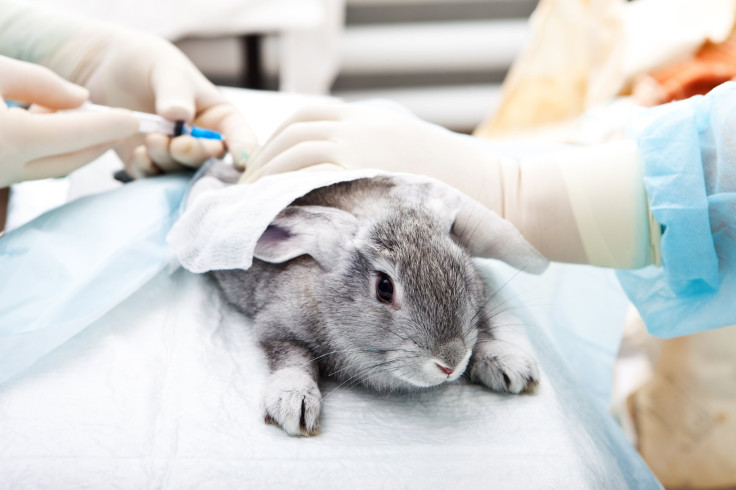Stem Cell-Based Skin, Grown In The Lab, Could Replace Animals In Cosmetic Testing Forever

We may soon see the end of animal testing on cosmetics and drugs. In a recent study, an international team led by Kings College London and the San Francisco Veteran Medical Center has successfully developed the first lab-grown outermost skin layer: the epidermis. Researchers hope this new lab-grown epidermis will be used as a more cost-efficient alternative to testing our favorite makeups and topical treatments. The discovery could also go as far as helping to develop new therapies for both rare and common skin disorders.
The team of researchers was able to grow an epidermis in a laboratory with the same permeability as real skin, using human stem cells called pluripotent stem cells, according to the press release. The human-induced pluripotent stem cells (iPSC) are able to produce an unlimited amount of pure keratinocytes. These are the cells found in most abundance on the outermost layer of the skin. The pure keratinocytes are then used to create a laboratory grown skin. The skin was grown in both high and low humidity environment to ensure that the permeability was up to par and able to both protect the body from losing moisture and prevent the entry of chemicals, toxins, and microbes.
“We can use this model to study how the skin barrier develops normally, how the barrier is impaired in different diseases and how we can stimulate its repair and recovery,” Dr. Theordora Mauro, leader of the SFVAMC team, explained in the press release. The endless supply of genetically identical laboratory-grown skin samples can be used in replace of animals, which are not only less reliable but also the source of a great deal of controversy. The skin can be grown to mimic a variety of different skin types and sensitivities, which may provide an everlasting source for commercial testing.
The use of animal testing for cosmetics received a lot of attention last year when Jacqueline Tride, a 24-year-old performance artist, spent 10 hours in a London shop window being "tortured" in methods similar to those used in animal testing. This was part of an animal rights campaign by the UK-based cosmetics company Lush and Humane Society International. “I hope it will plant the seed of a new awareness in people to really start thinking about what they go out and buy and what goes into producing it,”Traide told the Daily Mail.
Source: Petrova A, Celli A, Jacquet L, et al. 3D In Vitro Model of an Functional Epidermal Permeability Barrier from Human Embryonic Stem Cells and Induced Pluripotent Stem Cells. Stem Cell Reports. 2014.



























